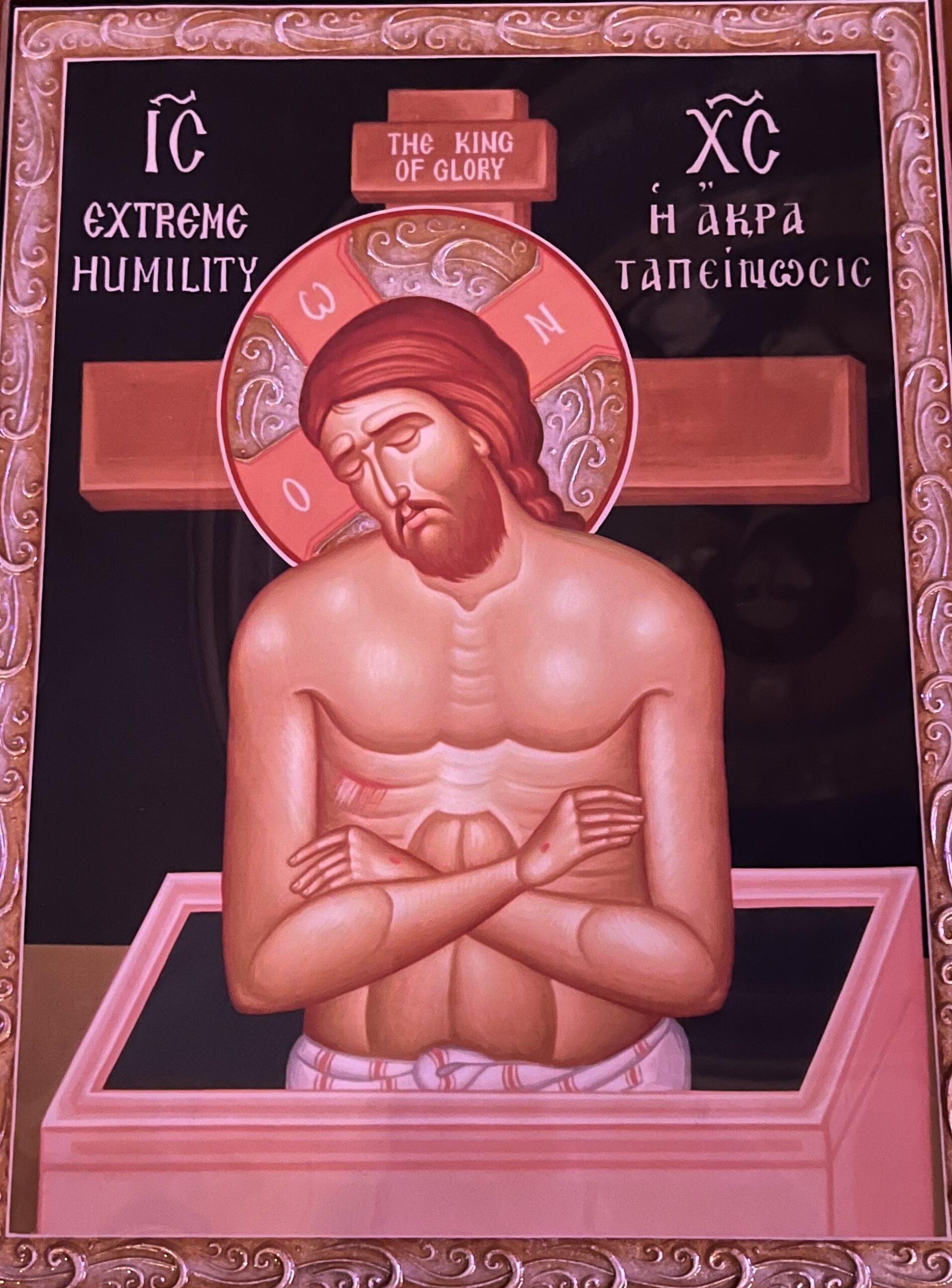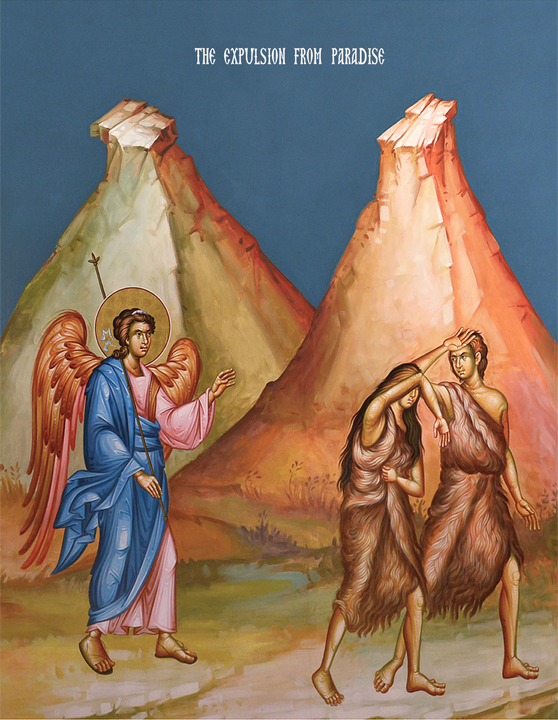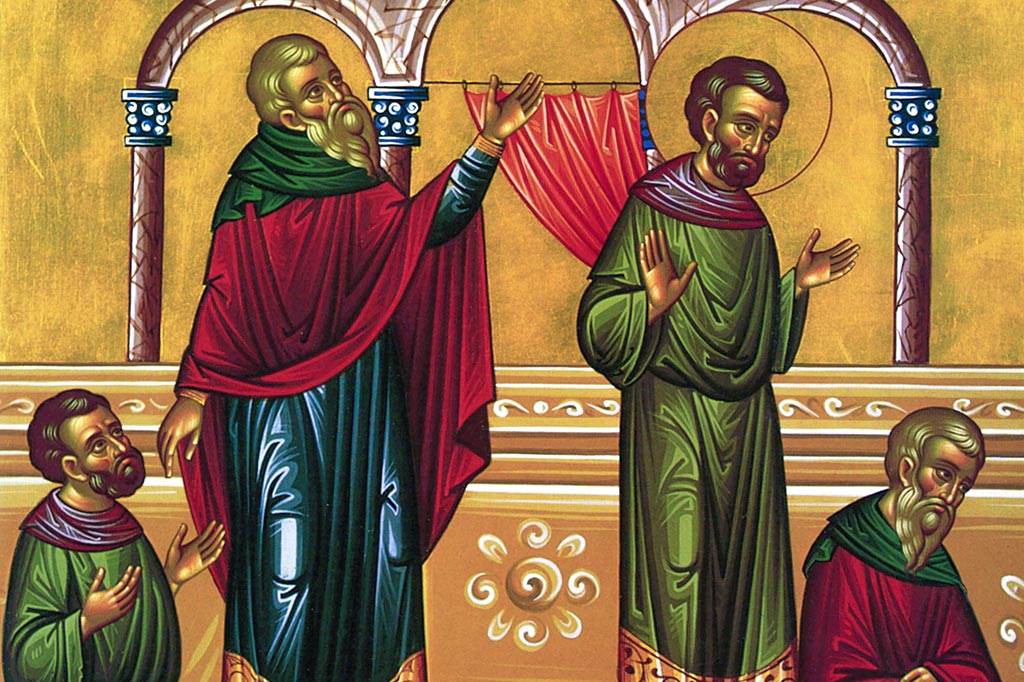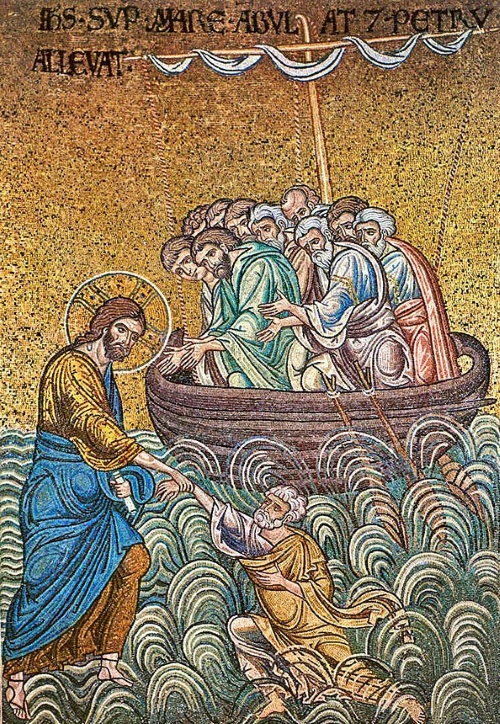In those days a decree went out from Caesar Augustus that all the world should be enrolled. This was the first enrollment, when Quirinius was governor of Syria. And all went to be enrolled, each to his own city. And Joseph also went up from Galilee, from the city of Nazareth, to Judea, to the city of David, which is called Bethlehem, because he was of the house and lineage of David, to be enrolled with Mary, his betrothed, who was with child. And while they were there, the time came for her to be delivered. And she gave birth to her first-born Son and wrapped Him in swaddling clothes, and laid Him in a manger, because there was no place for them in the inn. And in that region there were shepherds out in the field, keeping watch over their flocks by night. And an angel of the Lord appeared to them, and the glory of the Lord shone around them, and they were filled with fear. And the angel said to them, “Be not afraid; for behold, I bring you good news of a great joy which will come to all the people; for to you is born this day in the city of David a Savior, who is Christ the Lord. And this will be a sign for you: you will find a Babe wrapped in swaddling clothes and lying in a manger.” And suddenly there was with the angel a multitude of the heavenly host praising God and saying, “Glory to God in the highest, and on earth peace among men with whom He is pleased!” When the angels went away from them into heaven, the shepherds said to one another, “Let us go over to Bethlehem and see this thing that has happened, which the Lord has made known to us.” And they went with haste, and found Mary and Joseph, and the Babe lying in a manger. And when they saw it they made known the saying which had been told them concerning this Child; and all who heard it wondered at what the shepherds told them. But Mary kept all these things, pondering them in her heart. And the shepherds returned, glorifying and praising God for all they had heard and seen, as it had been told them.
Luke 2:1-20 (Gospel of the Vesperal Liturgy of Nativity)
The account of the Nativity is told in two of the four Gospels. The Gospel of Matthew focuses on the visit of the Magi, while the Gospel of Luke focuses on the visit of the Shepherds. It is interesting to note how different the Biblical account of the Nativity is compared with the “manger scenes” that we see around town and the Christmas programs we hold in our churches and schools. As we discuss these passages, we will not only give the theological meaning and inspiration of the story, but correct a few of the popularly preserved misconceptions about the Nativity.
Joseph lived in Nazareth. This is where Jesus would be raised. However, Joseph was from Bethlehem. This is why, when Caesar Augustus ordered a census to be taken and for everyone to be counted, each person went back to “his own city.” (Luke 2:3) So, Joseph took Mary and went to Bethlehem. While the popular notion is that Mary rode a donkey while Joseph walked beside, the Bible doesn’t mention how they got to Bethlehem, only that Mary was with child.
While they were in Bethlehem, the time came for Mary to deliver her baby. The Bible says that Jesus was “laid in a manger, because there was no place for them in the inn.” (2:7) There is no line for the innkeeper in the Gospel account. There is also no mention of a stable out back. Rather, the icons of the Nativity show the Lord being born in a cave. Whether they were directed to the cave by the innkeeper or found it on their own, we are not told. The cave is significant because it represents heaven (in the icon the interior of the cave is painted black, so he space is infinite, like heaven) and also represents the tomb where Christ would eventually be buried. More significant, the cave was not made by human hands. If the feast of the Nativity is the Creator becoming part of the creation, it is significant not that there was no room at the inn, but that there was no room in any building made by human hands, to hold the Creator who made the human hands. Jesus is also wrapped in swaddling clothes, which in the icons of the Nativity look like burial bands, the kind He will be wrapped in after the Crucifixion.
The Gospel of Luke introduces us to the angels and the shepherds. While there is not a specific number given to quantify “the heavenly host”, (2:13)we can surmise that this would have included tens of thousands of angels, if not more. It’s no wonder that the shepherds were “filled with fear.” (2:9) What is surprising is that the people in Bethlehem somehow missed the night time sky becoming bright as day. Or perhaps that is not surprising, if Bethlehem was as noisy and stressful as our towns our today. Imagine ten thousand angels appearing over the local mall—between the traffic, the lines and our ever present phones, we might not notice either.
The angels told the shepherds, “behold I bring you good news of a great joy which will come to all the people.” (2:10) The message of Christ, the message of salvation, is indeed great news, news that brings great joy, and it is a gift for all people, starting with the lowly shepherds.
The multitude of the heavenly hosts sang a hymn: “Glory to God in the highest, and on earth peace among men with whom He is pleased!” (2:14) In the Orthodox Church, every Orthros service ends with the Great Doxology, a hymn which begins with these words. What a fitting way to introduce the Divine Liturgy, by singing this hymn of the angels. It is so beautiful that long after we put away our Christmas decorations, the feast of the Nativity, through this hymn, is celebrated all year long in the Church.
This hymn, however, is usually mistranslated. It usually is said “Glory to God in the highest, and on earth peace goodwill to all people.” The correct translation indicates that the gift of God’s peace is not for all people, but to those “with whom He is pleased.” There is work to be done in order to receive the gift of God’s peace. It is up to us to work in a way that is pleasing to God, so that we can receive His peace. God’s peace (as well as salvation and other gifts) are not things we receive because we merely live and breathe. There is work for us to do.
The response of the shepherds shows not only joy but trust and faith. Imagine these men, who are so lowly in status that they aren’t invited to be part of the census. They are out in the country, no one is interested in counting them. Perhaps because they are nomadic, they have no town to call home. Imagine these shepherds. I wonder if they thought, “why us?” or “Is this some kind of cruel joke?” Yet they decide “Let us go to Bethlehem.” (2:15) It couldn’t have been an easy task to herd the sheep to go either. Yet their trust and their work is rewarded. They are the first to see the Christ.
It is very comforting to read the verse “Mary kept all these things pondering them in her heart.” (2:19) A popular Christmas song asks the question “Mary, did you know?” And the Biblical answer is, “yes, of course she knew that her Child was going to be the Son of God.” But did she fully understand what would mean for Him, or for her? The visit of shepherds was not part of the description given at the Annunciation. So Mary also had to trust, and to ponder and to wonder, what was going to happen to Him, to her, to Joseph, and what did it all mean. This is comforting because if the Virgin Mary had some questions, it is totally alright for us to have questions too. However, Mary wasn’t doubtful or distrustful. She was trusting in God’s plan and her role in it.
Finally, the most inspiring verse, for me anyway, is the last verse: “And the shepherds returned, glorifying and praising God for all they had heard and seen, as it had been told them.” 2:20) After encountering Christ, the shepherds were still shepherds. They didn’t become rich or famous. They still had a difficult job and a lowly social standing. However, their encounter with Christ changed THEM, it changed their hearts. They were never the same. Because they had encountered Christ. When Christmas is over, we’ll still have our challenges—maybe a difficult job, a challenging health situation, family problems, etc. But encountering Christ has the power to change us. Because Christ gives us hope, mercy and true joy. And the message of Christ is for ALL people, even the lowly shepherds.
Today in Bethlehem, Christ is born of the Virgin. Today, the Unoriginate begins, and the Word becomes flesh. The hosts of heaven are rejoicing, and the earth and humanity are merry. The Magi bring their gifts. The Shepherds proclaim the marvel. And we unceasingly cry out: “Glory to God in the highest, and on earth peace, goodwill toward men!” (Ke Nin, from the end of Orthros, Feast of the Nativity, Trans. by Fr. Seraphim Dedes)
Indeed the story in the Gospel is quite different than the Christmas pageants and Nativity scenes. But it is also more than a story. It is a message that changed the world, and it is a message that can still change us today, and not only at Christmas time, but throughout the year!



